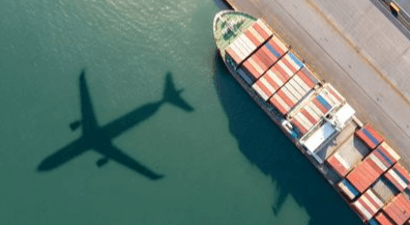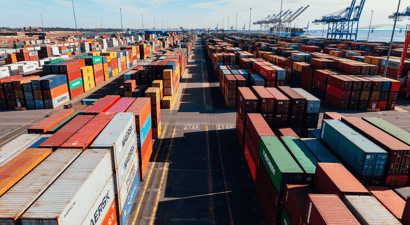Are you planning to relocate and have your goods shipped - Shipping & Logistics Update
By Sharmila Naidoo, Associate, Shipping & Logistics
What you need to know about the implications of “General Average” on cargo owners .
General Average is a marine legal principle which is declared by the master of a ship when the ship is faced with a life-threatening situation such as fire or a severe storm. In this instance he is forced to “act” in order to save a part or whole of the ship. This could be in the form of a voluntary sacrifice of property or an extraordinary expenditure incurred in a time of peril. The rationale behind this marine principle is that all parties involved in the carriage of goods are bound by a “joint venture”, in which all interested parties share a common interest in the ship’s voyage from the port of loading to the port discharge. There is an implied agreement between all interested parties to indemnify each other against deliberate losses suffered by any of the interested parties for the common benefit of all.
There are various situations which give rise to General Average acts, these include but are not limited to: jettison, cargo loss and damages, temporary repairs, voluntary stranding, salvage remuneration and fire extinguishing measures. In the event that a master of a ship had to jettison the ship’s cargo in order to save part or whole of the ship, all parties involved in this voyage will be asked to proportionally share the losses resulting from the jettison. Even parties, whose cargo had been landed safely will be called upon to contribute a percentage. Similarly, where a General Average has been declared and salvage operations were underway to refloat the ship, all parties would have to share the costs of the salvage operations. All interested parties including the cargo owners would have to pay out a percentage determined accordingly to help cover the costs. A recent example is the Maersk Honam: In March 2018 a major fire broke out on the container ship, which was carrying 7 860 containers and a crew of 27. Maersk declared General Average.
The York-Antwerp Rules, 2016 (“Rules”) is a set of rules which apply in the adjustment of General Average and it deals with the various General Average acts. The parameters of General Average are set out under the Rule Paramount and Rule A of the Rules.
Once General Average has been declared, an average adjuster is appointed. The Average Adjuster will then appoint a General Average Surveyor who will determine the types of damage suffered. Thereafter the Average Adjuster will arrange for General Average Security deposits from all interested parties before they can claim their goods.
So, if you are planning to ship goods, be wary of the additional costs you may incur if the master of the ship is faced with a life-threatening situation and General Average is declared. It is therefore essential to purchase cargo insurance which covers general average, for example the Institute Cargo Clauses (A). The insurance company will provide the guarantee and any contribution required for the loss.





